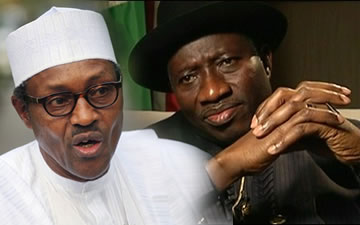
THE Socio-Economic Rights and Accountability Project (SERAP) has urged the two leading presidential candidates, Dr. Goodluck Jonathan of the People’s Democratic Party (PDP) and Gen. Muhammadu Buhari of All Progressives Congress (APC), to publicly endorse the global initiative for an International Anticorruption Court (IACC) to demonstrate their expressed commitment to tackle corruption and impunity of the perpetrators if voted into power.
SERAP gave the advice in a statement signed yesterday by its Executive Director, Adetokunbo Mumuni. “Such a multilateral body will be empowered to probe allegations of corruption in the spending on the fight against Boko Haram, the billions of naira raised under the Victims of Terror Support Fund, and to try other cases of political corruption such as those involving former governors that have remained unresolved for many years.”
According to the statement, the global campaign for an IACC is being championed by a senior U.S judge, Mark L. Wolf, who was said to have made presentations before the U.S Congress, the UN and other bodies on the need for the court.
“Given that many Nigerians have lost faith in the ability of successive governments to combat high-level official corruption and money laundering, an IACC could erode the widespread culture of impunity and contribute to creating conditions conducive to the democratic election of honest officials in a country with history of grand corruption.
“Some statistics provide that majority of those indicted for international crimes by the International Criminal Court are in custody, facing trial, or have already been convicted. The rest are fugitives in hard to reach areas or dead.
That’s not a bad track record. There is no reason to doubt that an international anti-corruption court couldn’t do as well, and by doing so, it would make a big difference in the efforts to combat corruption in Nigeria,” SERAP explained.
The organisation also said that, “Large-scale official corruption is so harmful and antithetical to the idea of a law-based society. It erodes public trust in government and permeates critical institutions of governance. But it is increasingly becoming clear that this kind of corruption is beyond government capacity to prosecute as it is unrealistic to expect ‘turkey to vote for Christmas.’
It is thus appropriate for the world nations to look at how international law can be engaged as a major component of the efforts to address the problem. “In Nigeria, corrupt officials generally are not deterred by the threat of prosecution.
Endorsing an international court to prosecute outstanding cases of corruption will deter would-be corrupt officials from turning public office into a maximising unit or business enterprise to make money at the expense of the interest of the public.
It will also reduce unnecessary political pressure on the government by corrupt politicians who can use their wealth and contacts to frustrate investigation and prosecution. “Large-scale corruption is not just stealing of a country’s resources and wealth but a basic issue of human rights.
In countries like Nigeria, political corruption continues to kill more people than war and famine put together. We believe that high-ranking public officials who commit acts of corruption that lead or contribute to human suffering, poverty, discrimination and other serious violations of human rights are no less guilty than those who commit crimes under international law.”



